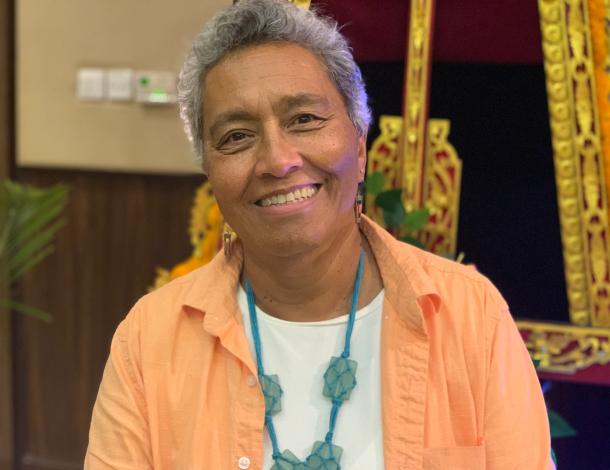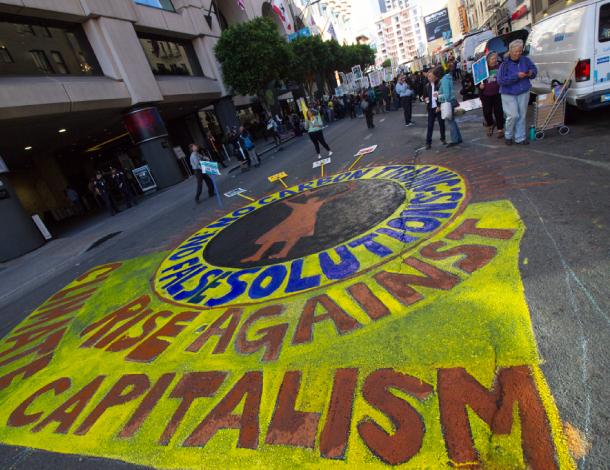The escalating panic and fear surrounding the COVID-19 pandemic is palpable across the social spectrum.
The Governor of California, the US State where I live, has ordered the entire state to “shelter in place” for the foreseeable future, meaning we can leave home only for essential tasks. Yes, the virus is yet to be fully known and controlled; yes, the incidence of infection is increasing and cannot be predicted accurately; yes this virus causes death. And yes, we must keep washing our hands and taking other precautions and maintaining physical distance. We must also practice social solidarity. This means involving ourselves in mutual aid, supporting healthcare workers, and finding effective ways to support workers and families in precarious situations and small businesses at risk of not surviving. At the same time, we must keep socializing virtually through dancing, music concerts, and other creative, inspiring, and healing, as well as fun, gatherings.

And, is the “Coronavirus” really the biggest threat we in the US are facing today?
Emphatically no! Another hazardous virus infected our hearts and souls long before this current pandemic. Its structures are individualism, the politics of scarcity, and the market economy, laced with racism, misogyny, and militarism, among other scourges. This virus has convinced many of us that everything of value is scarce and whatever there is will not be shared equally or fairly.
We must compete for what we need, and “may the best man win”. This virus has made us pledge allegiance to capitalism, which directs our “needs” and never fails to profit from human misery and suffering. According to Oxfam, in 2018, 26 individuals had the same wealth as half the world’s population—almost 4 billion people. Right now, powerful economic interests, and their Congressional partners, are positioning themselves to amass a fortune.
This most destructive virus spreads along many vectors.
It activates racism, ethnocentrism, and jingoism to explain unexpected events or seemingly new inexplicable phenomena. So we are said to be infected by the “Chinese virus,” “Kung Flu virus,” “the foreign virus”, and warned to beware “Muslim terrorists,” “(Mexican) illegals,” “boat people”, and so on. This scapegoating surfaces in the guise of serving some ostensibly higher purpose, such as “protection.”
This virus encourages us to believe that our pain and suffering are the most extreme, the most important, and the most deserving of sympathy and immediate action, without regard for the scale of suffering, sickness, and death worldwide. In its dormant stage, this virus enables many people in the United States to ignore the immense suffering of people in this country and beyond because we “know” and believe that we cannot and will not be affected. We walk and drive past people living on the streets, in makeshift tents and “rooms” constructed of cardboard. We close our eyes and explain away gun violence. From January 1 to March 7, 2020, while the coronavirus pandemic has developed, over 7,000 people died from gun violence in this country.
Many disasters that happen elsewhere simply do not register for us.
The World Health Organization estimated 220 million cases of malaria globally in 2018, with 405,000 deaths, mostly on the African continent. Two million Palestinian people have been imprisoned and have been under full military blockade with full U.S. backing for 12 years in Gaza, one of the most densely populated areas of the world, making our quarantines seem like a cakewalk. They live with extremely limited access to medical care, clean water, and electricity. Eighty percent of them depend on humanitarian aid.
Currently more than 50 thousand children are detained by US immigration agencies. Millions of people—mostly women and children—have been displaced within their own countries and forced to flee from violence, war, and environmental crises. US-led wars on Iraq and Afghanistan have generated nearly one million casualties. US-imposed sanctions on Iran are crippling the country’s ability to respond to this crisis. Lest you think I am only talking about people far away, one only needs to notice how we ignore the nearly 600,000 unhoused people whom we walk or drive past daily or the 15 million children - 20% of children in the US - living in poverty, as the government defines it.

Our virus-infected hearts do not ache for these people.
Or for undocumented people who are continuing to be deported, poor people and working-class people who cannot afford to “shelter in place.” The United States constitutes 6 percent of the world’s population but we consume at least 25 percent of the world’s resources, as if this is our entitlement. Our US-centered news outlets stoke our fears. No wonder people are hoarding toilet paper and canned goods as if these palliatives can treat the problem we face. No wonder our fears manifest as meanness.
Here is my prescription for curing ourselves.
First, we must accept that all beings are “relatives” and we share a common destiny. There is no escaping this fact as the current pandemic is showing us. This requires us to shift from personal and individualistic pursuits to collectivist ways of relating to the world, to share fairly and to pay vigilant attention to how our behavior impacts others.
Recovering our hearts to the healthiest state will require us to shift to a compassionate and caring economy that generates meaningful and sustainable livelihoods and provides the material resources needed for everyone to thrive. This cure requires universal social policies such as holistic health care, education, and childcare. It means ensuring all people are housed adequately.
Doing so will enable us to value all people, have confidence in our potential to live in life-affirming ways, and build a strong personal core that does not rely on competition and domination. Healthy hearts are essential in valuing the complex ecological web that sustains all life and generations to come. Only healthy hearts can love life deeply.
Almost 20 years ago, “9/11” was a profoundly critical moment for the American people and the government. We could have stopped then to recognize it as the time to learn and to transform the conditions that led to the attacks. Instead, we carried on with “business as usual.” The COVID-19 pandemic is another such opportunity.
2224x1253.jpg)